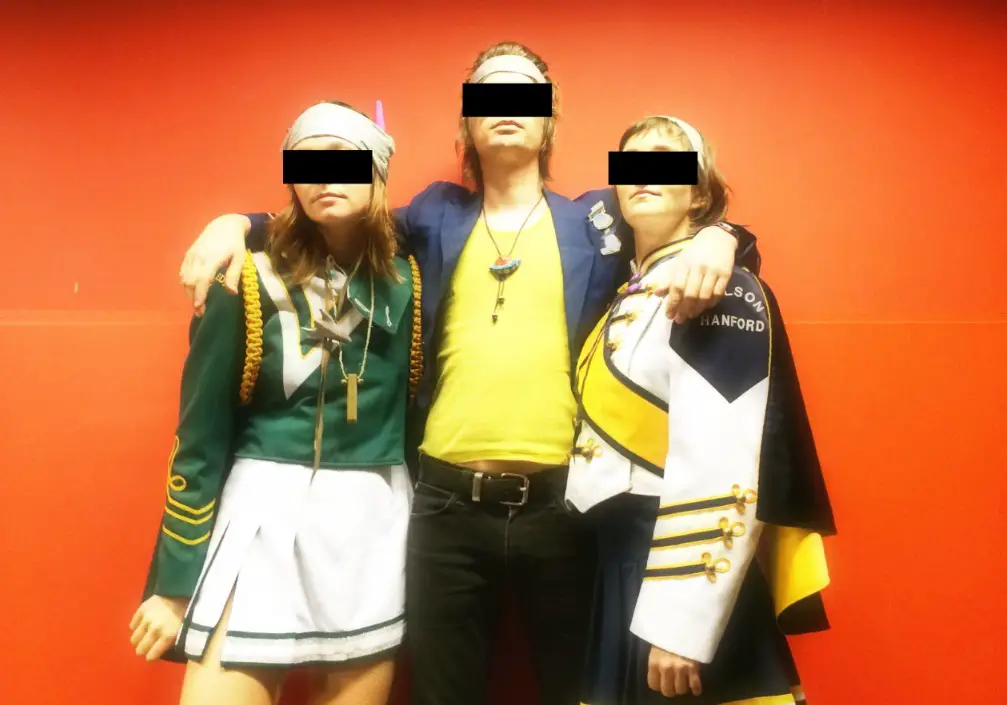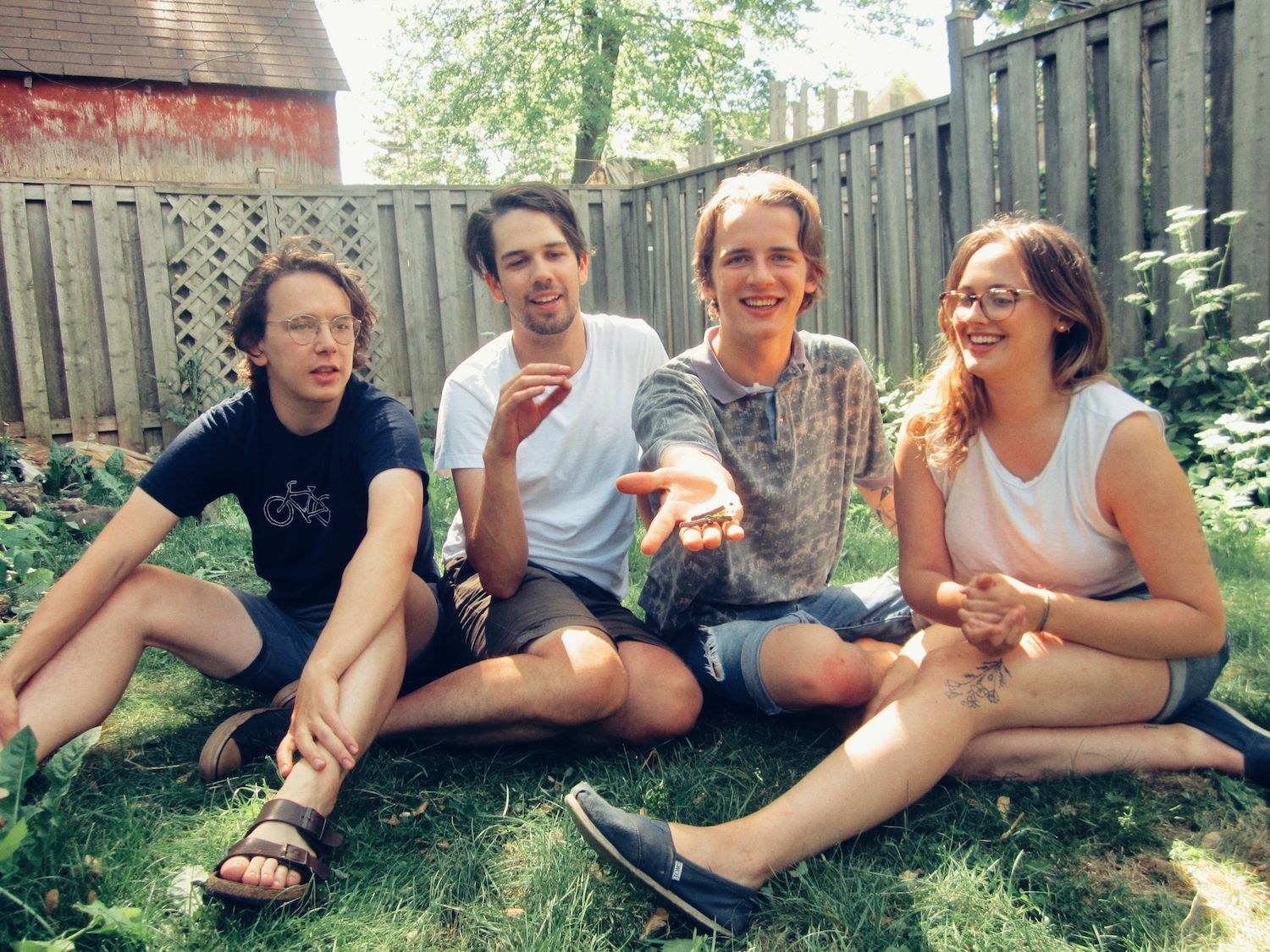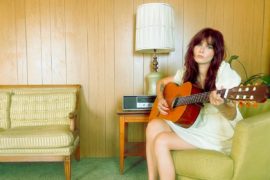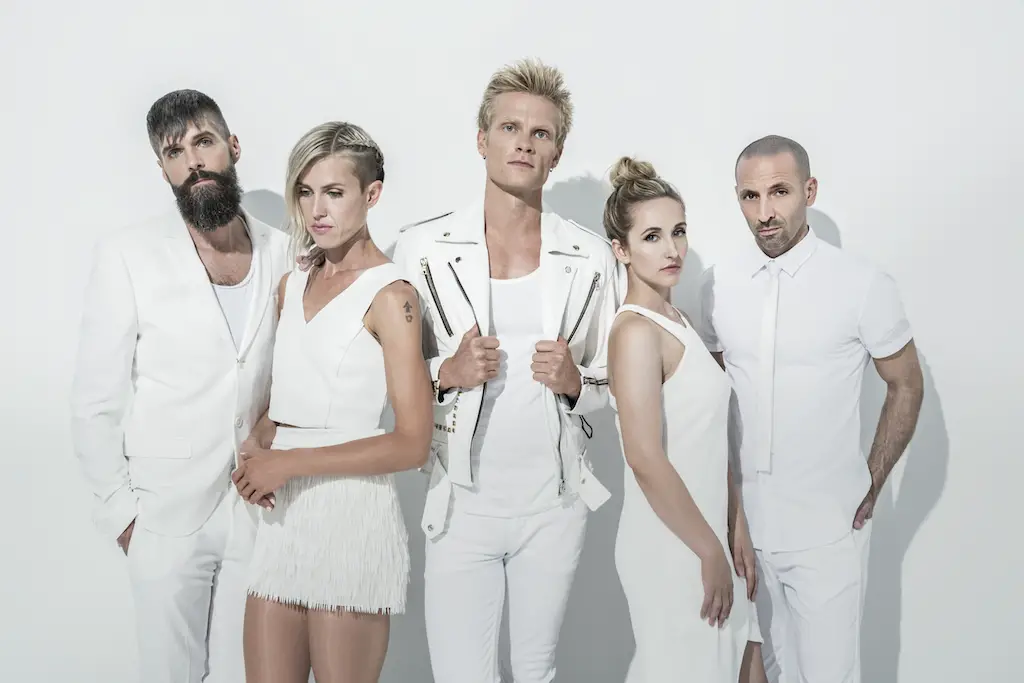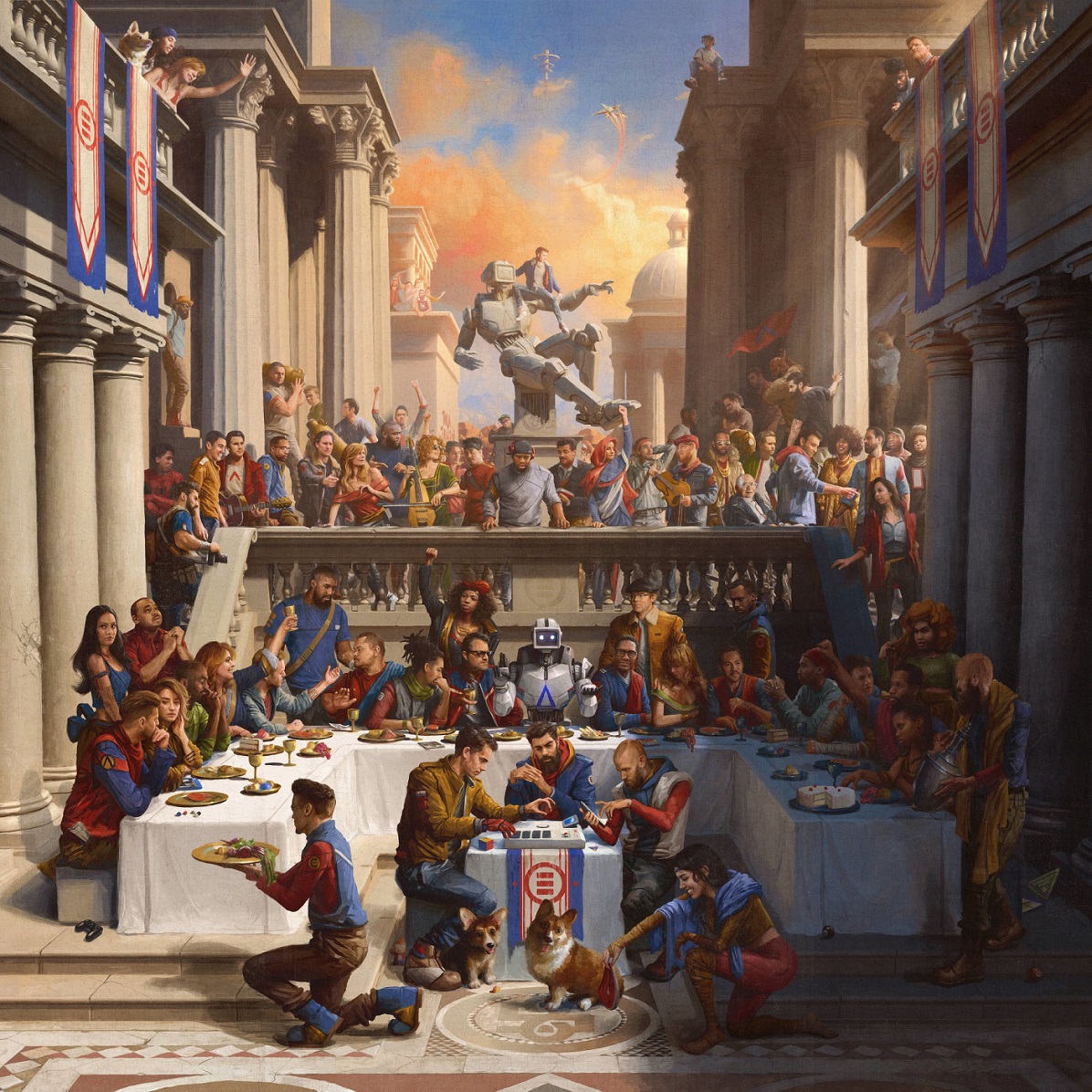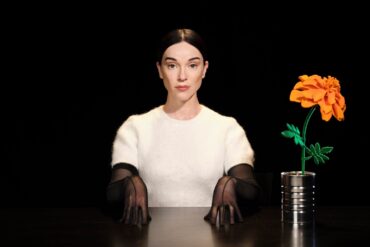Jacob Cummings shines in everything he does and doesn’t say on his new album ‘Southern & Enlightened, a boldly vulnerable and intimate body of work.
‘Southern & Enlightened’ – Jacob Cummings
Jacob Cummings is a singer/songwriter, producer, composer, multi-instrumentalist, and most recently, a filmmaker – and he might be one of my favourite discoveries this year.
Following instrumental projects Slow Paradise in 2020, and Fishing for Heaven in 2021, Cummings now returns with Southern & Enlightened (independently released November 8th, 2024). A gorgeous sweeping soundscape with sparkling arrangements and timeless sensibilities, Southern & Enlightened was composed and crafted in Cummings’ late grandmother’s home, in New Smyrna Beach, Florida, right before it was set to be demolished. Paving the way for the record’s emotional foundations, Cummings recorded this album in tandem with going through his grandmother’s belongings.
Perhaps symbolically, the record arrives as a final goodbye to his childhood, and the feelings that come with it – now stowed away within the intricacies of Cummings’ arrangements, forever for him to return to.

Southern & Enlightened presents a blend of indie folk and experimental artistry, evoking woody timbres and airy sea breezes. The subtlety of its sonic experience becomes increasingly complex as you begin to take it in, evoking sentiments of family, loss and the passage of time.
Cummings succeeds in maintaining a comforting nostalgia while shining in its intricate complexities. From standout tracks “Big Ol’ Deer,” “Incarnations,” and “Losing a Friend,” the multi-instrumentalist combines memory as well as abundance, making the record not only deeply intimate but infinitely touching.
Alongside the record, Cummings released a self-directed short film, capturing moments in time and the cycles of life. Opening on the gorgeous scene of a real-life birth, the film – quite literally – begins its life cycle. Cummings then takes you through a selection of memories and places, each one representing a different feeling of home, passing time, and quiet nostalgia.
Atwood Magazine sat down with Cummings to discuss the conception of the record, timeless artistry, grief for the past and optimism for the future. I haven’t stopped listening to Southern & Enlightened since I crossed paths with it, and finding this record was like discovering something I didn’t know I needed.
— —
:: stream/purchase Southern & Enlightened here ::
:: connect with Jacob Cummings here ::
— —
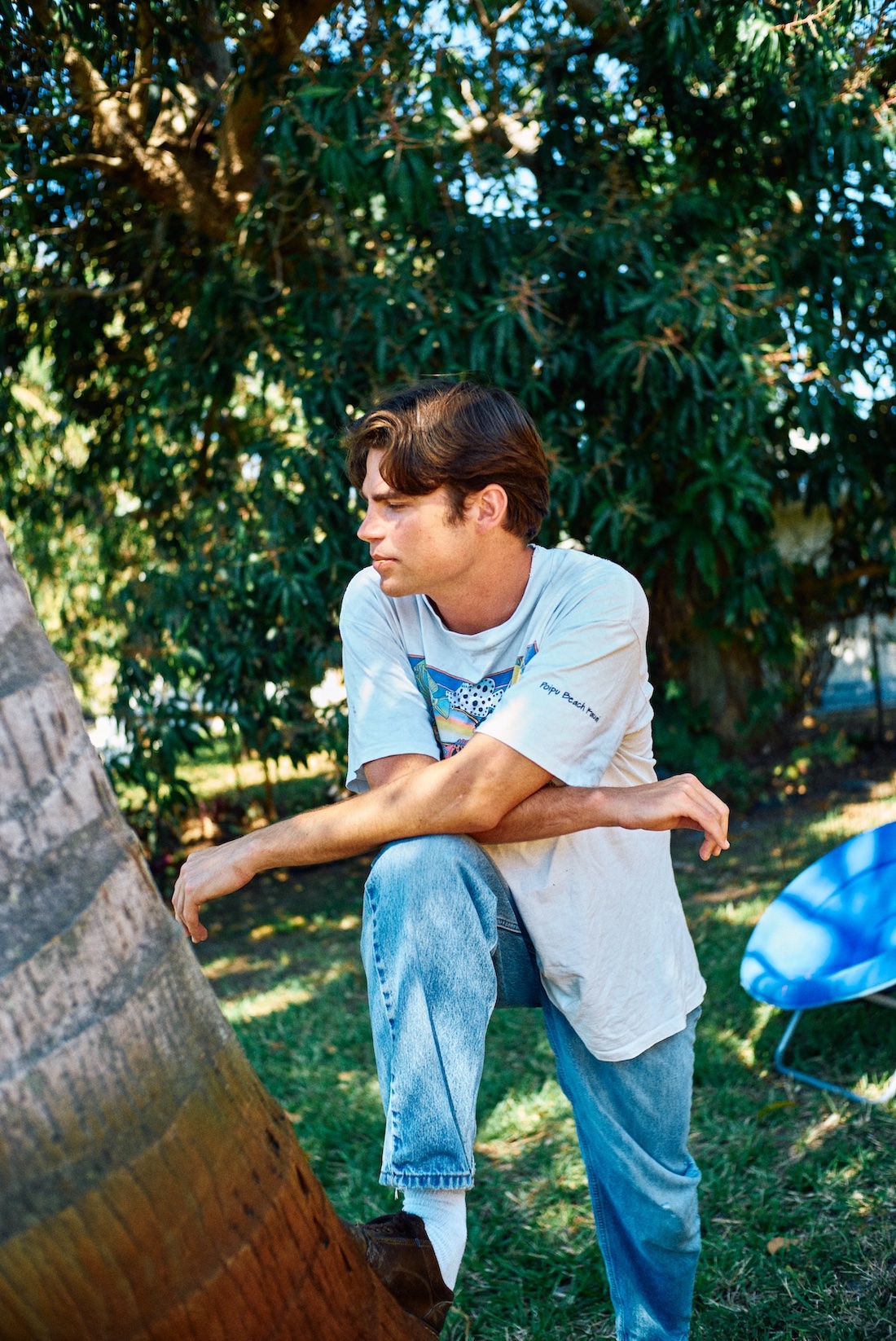
A CONVERSATION WITH JACOB CUMMINGS

Atwood Magazine: Congratulations on Southern & Enlightened! Tell us how the release has been like so far?
Jacob Cummings: Thank you so much. It’s been like the most fun release I’ve been a part of so far. It’s just the excitement and the support and getting more messages saying like, you know, this is really special to me… It’s so surreal. I did an album release party this past weekend, and that was kind of a dream come true. I did it at this gallery space just down the street from me and I made a full 40 minute visual to accompany the record, I played that for people and it was just like a bunch of friends and people came out. I felt like a rock star for a day. But yeah, since then I’ve just been planning out my first show for next month. I play with other people normally, like I’ve played random gigs where I’m on piano or something, but this is my first time singing and playing my music live.
I understand this was the first project you’ve put out where your vocals are featured, can you talk a bit more about that and what that journey has been like for you?
Jacob Cummings: I try not to think about it too much still, because it’s just a weird thing. I feel like most people don’t really consider themselves singers – myself included. Like, I’d just sing to the radio or whatever. Growing up playing different instruments, I think I really put myself in the box of being “the musician.” If I ever heard recordings of myself, I’d be like, Oh God, I don’t even want to dive into that anymore.
But with this, I started humming along to ideas I had in my head and recording them as voice memos. I ended up with an array of these memos where I’m humming, and a lot of them really stuck out to me. When I got the chance to spend a whole month recording music, I went into it pretty unsure. Like, am I going to sing these? Should I turn them into melodies for a different instrument? Should I have someone else top-line them? When I finally started recording, I’d try it out really meekly. But listening back, I’d get just enough glimmer of hope to keep going, haha. I feel like I reached this certain point in the process where I’d gone too far to turn back.
All that to say, if anything comes from this, it’s that I can relate to singers more now in the projects I work on. Singing is just such an exposing thing to do – especially for recording. I totally get the stereotype of singers saying, These are just reference vocals, we’ll do the real ones later, and then it turns into a forever loop of trying to get it right. It’s been really cool, but also hard to believe when people say stuff like, Your voice is so pretty, I love it so much. I try to lean into the idea that the music I listen to isn’t about perfect vocals or technical skill anyway. Alex G, for example, doesn’t care about what the performance of the vocal is like – it’s more about the broader scope of the song. So yeah, I think when I do the live show, it’ll be a different beast. Obsessing over vocals on a computer is one thing, but doing it in front of a bunch of people? That’s something else entirely. We’ll see how it goes.
You’ve drawn lots of comparisons to Jack Johnson and Bon Iver, do you have any influences?
Jacob Cummings: Yeah, those are two of the biggest ones, oddly enough – which I’m totally okay with. I mean, they’re really good comparisons. Jack Johnson was my first real musical love outside of the stuff my parents listened to. His voice is still undeniably beautiful. And then Bon Iver came along shortly after that and became another big influence. A lot of my friends are in music, and they know how sensitive it can be to compare someone’s work to other artists. I’ve even had friends who seemed on the verge of telling me who I remind them of but stopped because they didn’t want to mess with my perception of my own music. I’m always curious to hear it, though. But at the same time, it does affect how you think about your own project, you know?
Honestly, I’m trying to move away from making those kinds of comparisons myself. It’s more fun that way. Growing up doing creative things, it was so easy to think, Wow, that person is amazing. I’m just going to try and do what they do. But over time, it becomes more about your own journey – peeling away those influences and letting your own voice shine. In some ways, it’s cool that Jack Johnson and Bon Iver are the two artists I get compared to most. They’re not direct inspirations for what I’m doing right now, or even what I’m listening to much at the moment, but they’ve obviously left a mark on me.
I think inevitably, though, I still have influences. There are certain artists I turn to when I’m feeling stuck – when I’m thinking, What am I even doing? This feels so pointless. Those are the artists who remind me why this matters and who motivate me to keep going. I like to think about the impact they’ve had on me and the idea that, even if I’m not doing exactly what they did, I might be creating something meaningful for someone else.
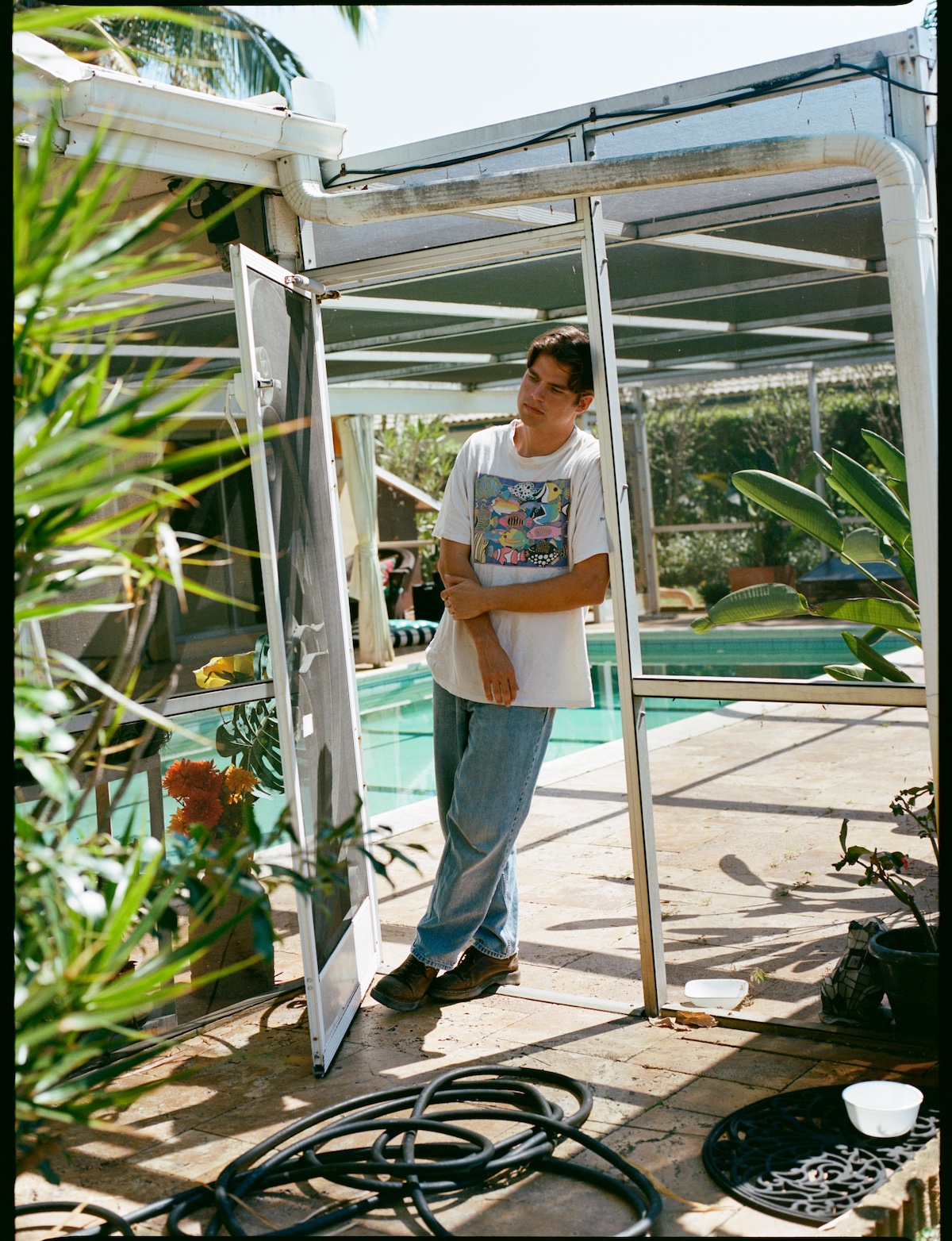
Let's talk a bit about the conception of the album, and I know there’s a great story behind this.
Jacob Cummings: Yeah! So, to start way back and not miss any pieces – I’ve been a musician since sixth grade. I started out playing saxophone in marching band, jazz band, concert band, all that. Then I studied saxophone in college, and that’s where I got into production and recording music. I started collaborating with other people, one of whom was my now-partner, Laney Tripp. I worked a lot on her production projects. During the pandemic, I released this really weird acoustic guitar album. It came about because I rediscovered this old guitar my dad had gotten me in middle school. It had a missing string and was in these strange tunings, but I just really enjoyed playing it and teaching myself how to fingerpick. With COVID and nothing else to do, it turned into this fun science experiment – figuring out how to record and release music. Shortly after that, my partner Laney and I made an album together. Fast forward to about two years ago: through life, sitting in green rooms, waiting through soundchecks, or just being bored at home, I’d come up with cool little ideas, record them as voice memos, and collect them. Eventually, I had hundreds of these snippets. It’s always been a dream to hunker down and turn them into something.
Then my grandma passed away. She lived in this amazing old house in South Florida, the same house my mom grew up in, with terrazzo floors and a canal out back. When I found out the house was going to be sold, it hit me hard. So, like a total dummy, I dropped everything I was doing, packed eight bags full of music gear, and went down there with the plan of staying in her space and making music while I still could. It was a really cathartic time. I’m not much of an astrology person, but it felt like some kind of post-Mercury-in-retrograde energy – a lot of self-reflection and figuring things out. I was reading The Body Keeps the Score, starting therapy for the first time, journaling, meditating, running a lot, and working on all this music. My only visitors were my two aunts, who came for a weekend, and a couple of friends who helped me track some instruments. Other than that, it was mostly solo, which was unusual for me since I’m typically always working with people.
After a month and a half, I came back home with a pretty solid idea of what the album was and how it would be laid out. But it was tough to make time for myself to actually sit down and work on it. It felt like this huge task that couldn’t just be chipped away at in an evening. Eventually, I decided to book a week at this cheap motel I’d discovered before. It’s in a little beach town three hours north of L.A. called Pismo Beach. The motel, the Sea Gypsy, is right on the beach and exactly what you’d expect – just the most comforting, nostalgic place. It’s got tourists hanging out in the hot tub, a “goat man” who takes people surfing, and this carefree, frolicking energy. It was the perfect place for me to feel comfortable and focus.
What was it like to make this record at your grandma’s house?
Jacob Cummings: There really aren’t words for what it meant to both be in her house for that extended period of time and to start a project fresh there. I’m kind of patting old Jacob on the back for just committing to it, because it was a freaky thing to do. I freelance for work, and I completely set that aside to focus on this. Of course, as soon as you plan something like this, life keeps happening – you start wondering, Am I missing out on everything else? Not long after my time there, the house got sold to a big real estate guy, and he demolished it. That added this extra layer of validity to the whole experience – like lying on the tile floor, sinking into the feelings and memories the house held. It was the closest thing I had to a childhood home. We didn’t really stick around in one place growing up, so this house was the constant. This was where my brother and I spent summers when my mom was sick, where we stayed when we needed somewhere safe. The pool in the backyard hosted all our birthdays. I’d throw alien-themed parties with slime and all that in the yard. It’s where my dad kept his boat, and we’d go out into the Intracoastal as a family. We spent all our Christmases there.
So, to be in that space, working on this project, felt unexplainably important. It gave me this perfect sense of closure – not just for the house itself, but for that whole chapter of life. It felt like a bittersweet goodbye, especially seeing the area now. The neighbors are mostly people from New York or other places, buying summer homes to throw parties. The ethos of the community that was there when my grandparents first moved in is gone. That shift made the experience feel oddly complete, like the culture of the area and my connection to it had moved on together. I think the album reflects that. There’s this element of closure to it, like it’s closing the door on my youth or the years I spent growing up. Sometimes the music feels grandiose in how it’s trying to make sense of myself and my surroundings. It’s a big, personal statement in that way.
A lot of my favorite music has that quality – it’s like looking into someone’s mind or their journal, a chance for the artist to process their feelings in a way that goes beyond words. It’s about creating the emotions, not just describing them. That’s what this project felt like to me – a chance to do that, to turn all those feelings into something tangible. It’s pretty special to get the opportunity to do that at all.
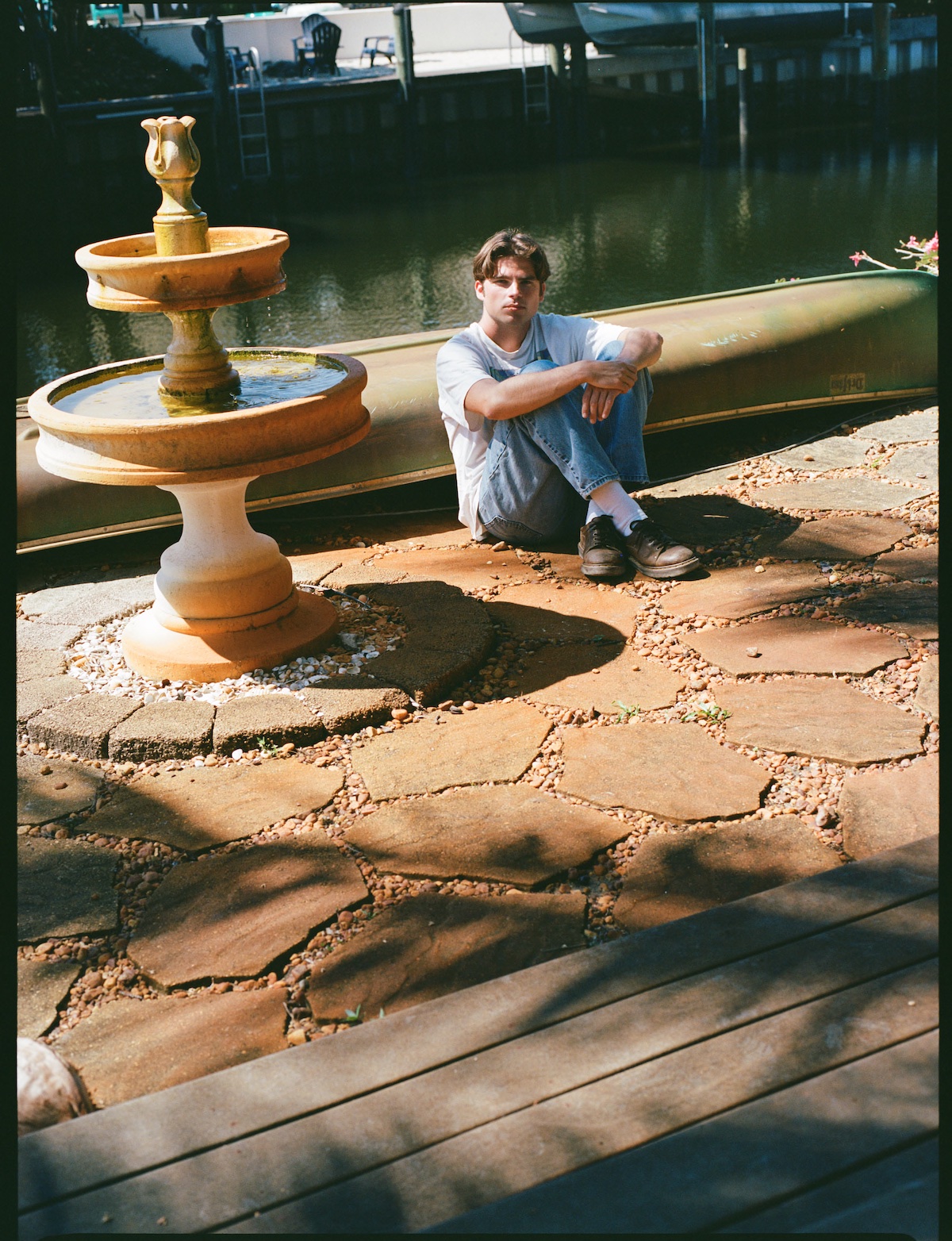
How do you think this album will grow with you? Like do you feel different about it now from when you made it and do you think it’ll invoke different things for you maybe five, ten years down the line?
Jacob Cummings: Making the album felt like a total mind battle at times. It was this constant push and pull of thinking, This is stupid. I should just stop. Nobody’s going to like this. I’m having a miserable time doing the 400th guitar take. But there were these little glimmers of hope – just enough to keep me going and see the whole thing through. Now that it’s out, it’s a completely different experience listening to it. There’s no way to rewind the process, to revisit or tweak anything, so it just exists as it is. It’s a little embarrassing to admit, but I’ve never totally related to artists who say they never listen to their own music once it’s released. I’m not sure if I enjoy listening to my music, but it brings me back to specific moments and feelings. There’s something I appreciate about that.
Where I’m at now, it’s easier to listen because people have said kind things about the music, which helps quiet the self-doubt. Still, I’m really curious to see how I’ll feel about it five or ten years from now – and how others will, too. With the other things I’ve put out, they’ve kind of grown in importance to people over time, which has been really interesting to see. Half the songs on this album are instrumental, which I think makes them feel less like a timestamp or something tied to a specific era. At least, that’s what I hope. I’d love for this album to feel timeless – like in ten years, it won’t feel like a 2024 album.
No, it really is such a timeless album! It just has that quality to it where it just feels good.
Jacob Cummings: That’s awesome. That’s cool. Yeah, I feel like, as much flack as modern streaming services get, there’s a real beauty in how they let projects live on and take shape over the years. Personally, I get caught up in the social media mindset sometimes – where you work on something, share it, and then it only exists in people’s feeds for 24 hours before getting swallowed by the algorithm. It can feel so fleeting. But with platforms like Spotify, it’s different. The music gets to stick around. It lives on in a way that’s really exciting. Physical formats, like vinyl, have that same quality. They give your work a kind of permanence, which I think is one of the most rewarding parts of the whole process. And, yeah, music is kind of like a time stamp in that sense. Once you put it out, it’s there forever – streaming or not.
Were there any songs that were particularly challenging for you to write? And do you have any favourites?
Jacob Cummings: The first song on the album is an instrumental, and I think I reworked it three or four times. I’m not sure why it was so difficult – it’s such a simple piece. It’s mostly just two chords, this piano thing I like to play, and it always felt really nice as it was. But it was also fun to build around it, to try to create a bigger feeling. So there was this constant push and pull between staying true to that simplicity and exploring a larger sound around it.
Then there’s a song, track eight, called “Big Ol’ Deer.” That one started as this little thing I would hum all the time, and eventually a few words emerged from it. It was tough to push past what was already in my head, though. Some songs let you step into them and new ideas just come, but this one had more of a harsh cut-off. My favorite track is probably “Incarnations.” It was the one time I really had what you’d call a songwriter moment. I was playing guitar, and words just started coming out of my mouth – completely unplanned, but they felt right. It was this rare, organic moment where I wasn’t overthinking anything; it was just pure feeling pouring out. I don’t know if something like that will ever happen again, but it was such a cool experience.
“Incarnations” was definitely my favourite. And “Losing a Friend.”
Jacob Cummings: Yeah, “Losing a Friend”! My friend Chris Meyer has been a big influence on me. We were working on another project when he started playing a piano part, and instantly, I was struck by how beautiful it was. I really loved it. The project he made it for didn’t go anywhere, so he generously gave me the piano part, and I expanded on it. Chris has been a big collaborator of mine over the years – he’s done instrumental music and also some really amazing Indian-inspired music under A Car That Swims. I’ve worked on a lot of his stuff, and he’s worked on mine too. It meant a lot to me to have him so deeply involved in this project, especially because he moved away a few months before the album came out. That’s not the reason the song’s titled the way it is, but it’s still really special. We’ve lived so much life together already, and it felt important to have him as part of this project. When I was listening to the song, I immediately thought, “This sounds really sad.”
I was talking to one of my mom’s old friends – someone I grew up around – and she shared her experience of losing my mom. I didn’t expect that conversation to hit so hard, but it deepened my understanding of the song in a new way. Losing a friend is different from losing a partner or family member. You don’t get the same kind of sympathy or support, and it can feel like a more isolated grief. In that moment, I realized how much that type of loss mirrors the feelings in the song – there’s this romantic, intimate sense, but there’s also a layer of despair and hopelessness. The song took on this new light for me, one that shed a beautiful, bittersweet perspective on friendship and the feeling of losing it.
You mentioned this earlier, but we have to talk about the film you made as well. I loved it! It’s so beautiful. It kind of contextualized the album as a series of feelings for me.
Jacob Cummings: That’s very sweet. Thank you for saying that! That was definitely the goal – to create something that blends songs and video in a way that feels a little more ambiguous. I don’t think I totally nailed it with this project, but it’s something I really want to keep working on. I want to make it so that when people experience it, they’re not sure if it’s a film with a great soundtrack or if it’s an album with a visualizer attached. There’s a film called Buffalo ’66 that I watched during COVID, and it really resonated with me. The director and actor, who is definitely a bit of a weirdo, also composed the soundtrack, and that was super inspiring. It’s a path I want to explore more – where the music and visuals feel completely intertwined. I want to continue learning about it and finding ways to integrate the two.
The plan for this project was to finish all the songs first and then dive into the visuals. I had a wedding to attend in Florida earlier this year, so I decided to stay an extra week or two to shoot as many of the videos as I could. Each song has its own emotional depth, and I wanted to convey that with visuals. I had this vague through-line that loosely tracks a life journey from start to finish, which is something I really want to explore more in my career. Boyhood wrecked me when I watched it last year, and Lady Bird is another coming-of-age film that hit hard. There’s something about watching life unfold on screen that really speaks to me, and I want to keep exploring that arc of growth in my work. The first three songs were clear to me in terms of what I wanted to convey, as was the last song, so I knew what I was working toward. It was a different process for each song, though – trying to find collaborators who could help me capture those emotions in the most candid way possible. I really aimed high with the visual ideas, and though I didn’t always get what I originally envisioned, what came out of it was often better than what I could have planned, especially considering the budget constraints. Sometimes, things end up working out in a way that’s even more fulfilling than if I’d had unlimited resources.
How did you pick the locations to shoot?
Jacob Cummings: So, I was primarily in Jacksonville, which is in the northern part of Florida, and that played a big role in how the video shoots came together. A good example of this is the first song, which I envisioned as a birthing scene. If I had an unlimited budget, I would’ve been able to carefully plan everything – specific locations, lighting, casting – but instead, I had to approach it in my typical DIY way. I reached out to a friend who’s a doula and asked her to connect me with someone she knew who might be giving birth around the time I was in town. I didn’t even know what they looked like, but I was on standby every day, waiting for the call. Then, when I arrived, I found this family with a daughter who, to me, became the emotional heart of the whole experience. It was something I could never have planned, and it ended up being a much more intimate and moving scene than I could’ve imagined. Then there’s a song called ‘Survivor’, where I wanted to capture this preacher, someone who could really pour his heart out to the crowd, but also have these moments where he breaks down. I tried reaching out to a few pastors, but it’s not easy to get someone to respond to that kind of request.
Eventually, I met this guy, Tony, while I was having breakfast one morning. He was cleaning windows nearby, and we started talking. He told me he used to dance and act, and I thought, Okay, this could be perfect. I told him about the project, and even though it was a bit out of his comfort zone, he agreed to help. We met at a random church one evening, and I had all these ideas for him, but it’s always tricky directing someone who’s never done anything like this before. The cool part is, when I show people the video now, Survivor is often the one that resonates most. We just filmed him talking, and his passion and energy were so raw and motivational that it came across perfectly on camera. He also did a dance for it, and somehow it all just fell into place. It was funny because, in contrast to my usual themes – things tied to my past or my upbringing – this was just completely random. It’s one of those moments where things come together naturally, and I guess that’s part of what makes music so special. You can plan all you want, but sometimes the best things just happen.
Wow that’s so interesting because to me the whole movie feels like it's captured those moments you don’t realise are anything in the moment, but end up becoming something significant later on. So it’s cool that the video shoot kind of went that way as well.
Jacob Cummings: That’s a good point! That’s true.
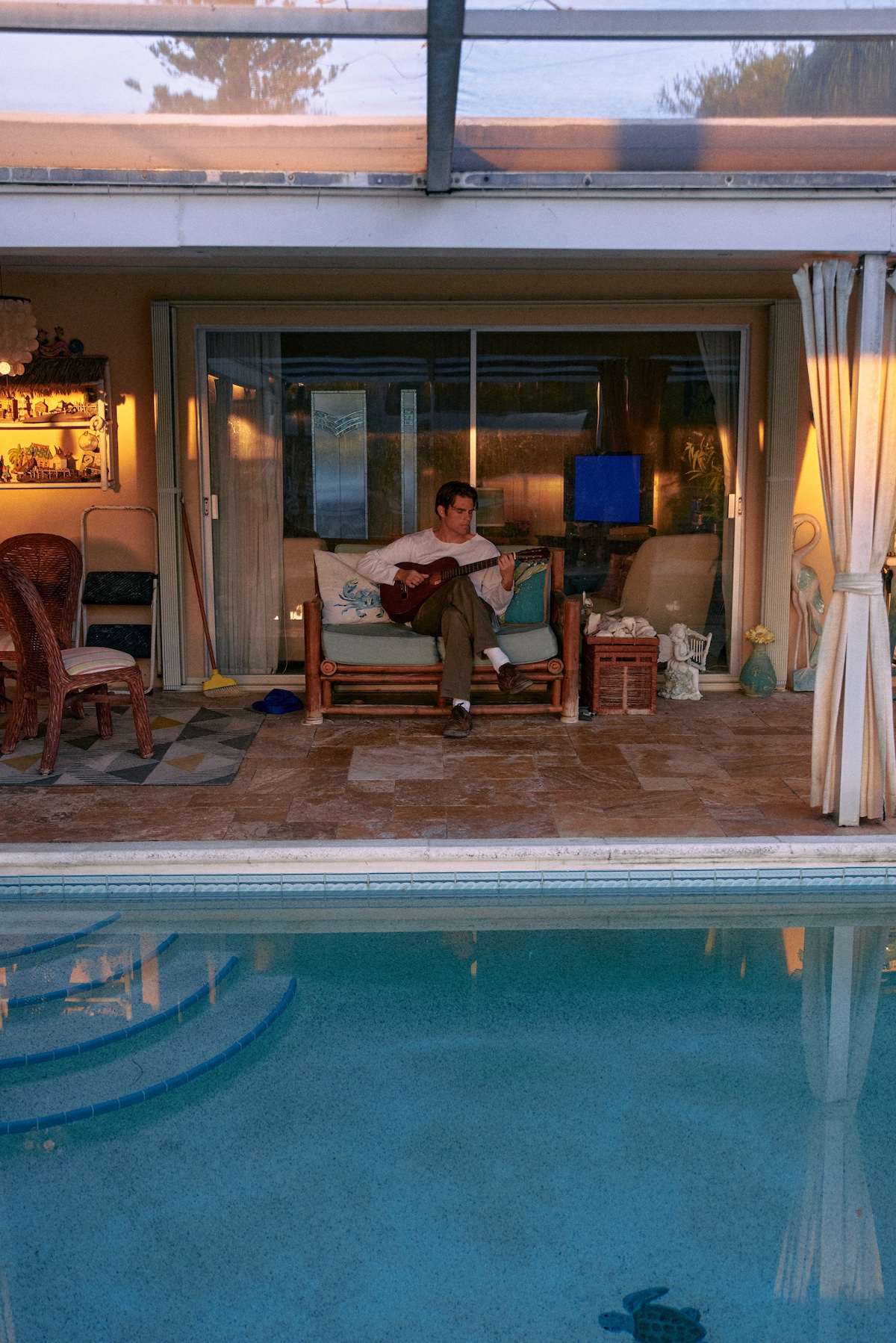
So it seems like you have a lot of influences beyond just sound, how do you translate those things into music?
Jacob Cummings: I think part of what helps is that I don’t necessarily consider myself a “songwriter” in the traditional sense. I really admire artists like Bob Dylan, who are able to craft entire worlds with their words. Dylan, in particular, has this incredible ability to create vivid stories and ideas that resonate deeply through his lyrics. But for me, that’s not where my strength lies. The beauty of being human is that we all have different strengths, and for me, it’s always been about playing instruments. It started with that – figuring out how to creatively play and express myself with instruments. When I was in high school and college, it was all about technical ability, about pushing myself to play as precisely and technically as I could. But since graduating, I’ve been in this process of unlearning that mindset. I’ve come to realize that music, like all forms of art, is just a way of expressing myself and my emotions.
I’m really grateful for the disciplined musical foundation I had growing up because it allowed me to let go of the need to impress or follow rules. Now, I don’t worry so much about theory or how technically impressive something is. For me, it’s about sharing what feels right, sharing something that’s unique to me. A lot of my songs are just two chords, going back and forth, but that works for me. I think it’s more about the feeling and the connection than anything else.
Absolutely, it’s almost like being musically trained gives you the tool set to be able to express yourself how you want to.
Jacob Cummings: Yeah, exactly. It’s really cool to be around people who are so incredibly talented, especially when you’re in rooms with folks from places like USC or UCLA. You know, those kids can play circles around you, and it’s hard not to feel intimidated sometimes. I personally love that kind of music too, the technical stuff, the complexity – it’s amazing. But at the same time, it can definitely get in your head. You see someone playing 16th notes for hours or shredding bebop licks, and you can start thinking, “I can’t do that, so maybe I’m not good enough.” But I think that’s where the beauty of music comes in – it’s not about being the most technically perfect player. It’s about the feeling, the expression, and what you’re bringing to the table. What really matters is the connection to the music, and that doesn’t require you to be able to play everything perfectly. That’s the freedom of it, right? It’s not about comparing yourself to others – it’s about finding your own voice. So, yeah, even if you can’t play those complex licks or perfect every technique, that doesn’t take away from the power of what you’re creating. It’s all about how it feels and what you want to say through it.
Can you walk me through the image you chose for the album cover as well?
Jacob Cummings: My friend Garrett and I were filming at this pretty dingy water park called Adventure Landing. Classic scenario: I have a bag full of camera gear, and there’s a high school kid checking us in, who’s just trying to flirt with the person next to him. We go to the front gate, and no one’s even there. We just walk right through – weekday, so there’s no line – and I have my cameras going through the tubes and stuff. I was snapping a bunch of photos while we were there, and this one really resonated with me.
It’s kind of an homage to the photographer Martin Parr. I haven’t really thought about how it ties into the concept of the album too much, but something that stands out to me now is that, in the photo, there’s this mom in the foreground who’s just like this total “mother lion” protecting her children. She has that ‘2000s’ vibe to her – like a classic mom look. I don’t think it’s a Vera Bradley bathing suit, but it has that kind of pattern to it. Looking at it now, I think it connects to the album title, Southern & Enlightened, in a broad sense. The photo is of these families having fun, just being there with their kids, and I think that’s a big part of what the album’s about. The simplicity of a lifestyle like that – how a lot of other things can get in the way of that simple joy and connection.

What does this record symbolize to you in the trajectory of your career?
Jacob Cummings: That’s a good question. I hope it’s sort of like this, because like I said, I produce music and really enjoy doing that. I have this studio now, which is where I’m at right now – it’s a bit messy with all my vinyls. But yeah, I hope that I can continue having a career in producing music with other people. A lot of artists I admire have made an album for themselves that serves almost as a portfolio, and I’d like this album to be that for me in some ways. I hope people will get a better understanding of where I’m coming from and want to collaborate or meet in the middle on their projects.
At the same time, in this new headspace of being a musician – because I’ve always just seen myself as an artist – it felt important for me to really embrace that role. A big part of that is performing live, which I never intended to do when I made this album. I never thought I’d sing, but over time, I realized that if I’m really going to pursue this world of music, I shouldn’t settle for any part of what it means to be a musician. And a huge part of that is live performance. So, I think putting out this album has really pushed me to pursue that aspect of having a career as a musician. But I also want to, in some way, skew the typical idea of what that career looks like and approach it in a more artistic, creative way.
How did this project help you to grow as a musician?
Jacob Cummings: I think the overarching theme is just confidence. Like we’ve been talking about, it’s really intimidating to commit to a project of any caliber – especially for me, singing for the first time. You’re met with hundreds of questions, and you’re constantly having to make decisions that challenge your sense of self. At a certain point, you just have to let go and stop overthinking it. You can’t let yourself feel like, “I’m going to give up,” or “This doesn’t deserve this much attention.” I think about the first two things that come to mind: making the album and getting the vinyls pressed. That was a huge commitment in terms of time, energy, and money. Once you’ve committed to something like that, there’s no room to lose your confidence. You just have to trust that what you’re doing is worth it.
Yeah, I totally get why music can feel quite self-indulgent at times, but it’s totally not.
Jacob Cummings: Exactly, yeah. It’s freaky, and I really feel like you just have to not overthink it as much. And if you do, you have to realize it’s bigger than just you. I’ve been part of projects, or I’ve had friends who’ve made things, and it’s really important to me. Even if I’m not closely attached to it, it brings more happiness and purpose to my life. I think that’s a good reminder for me – that it’s not just about me. It’s not as self-indulgent as it may seem. I don’t think it always has to be perceived that way.
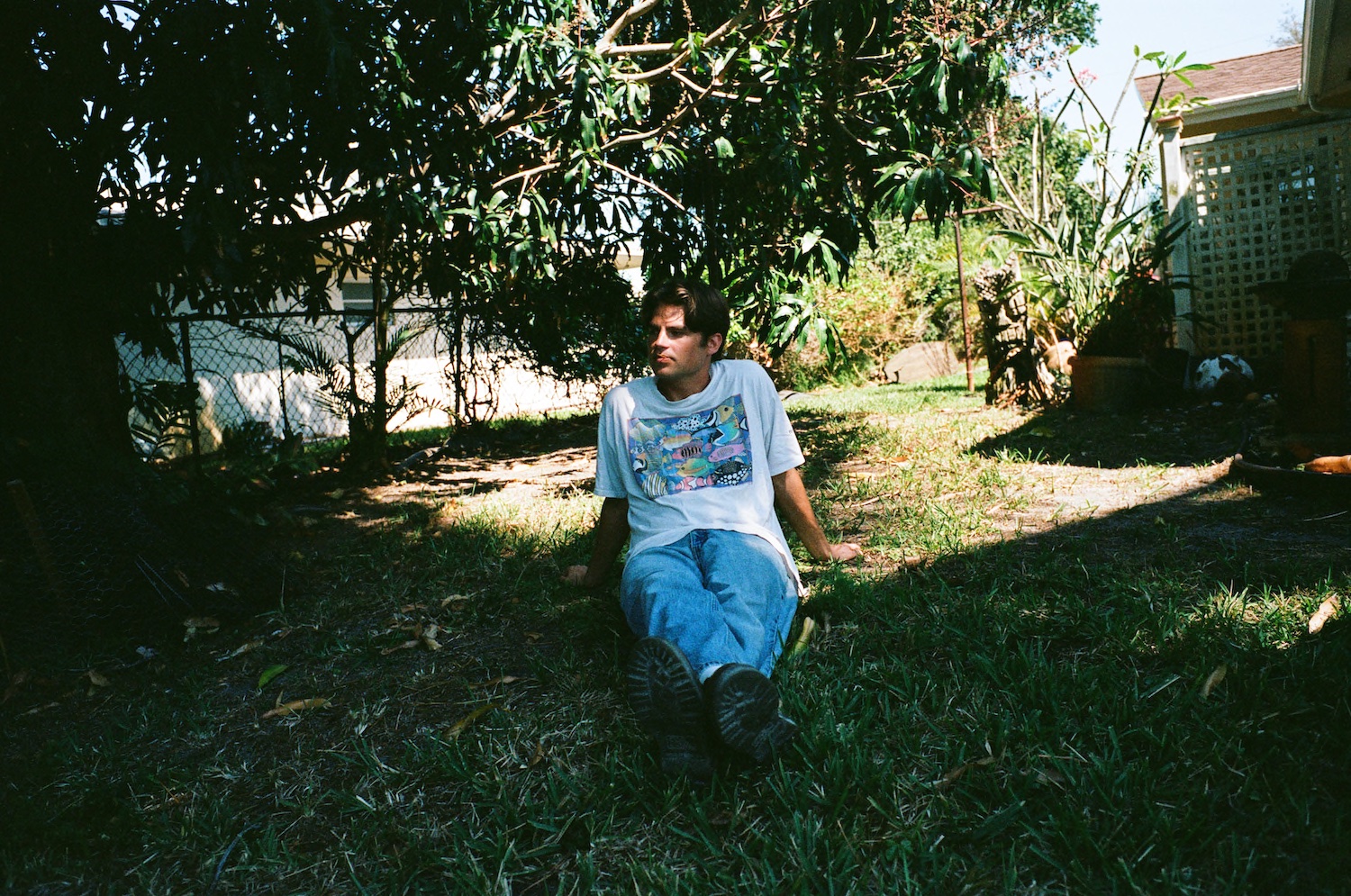
What do you hope audiences will take away from Southern & Enlightened?
Jacob Cummings: That’s a good question. A good example would be a message I got last night – someone said, “Hey, I’m in Japan, just cruising around on a motorcycle, and I’ve been playing your music nonstop. It’s the perfect soundtrack for the experience.” It’s moments like that, when music becomes part of someone’s life, their personal soundtrack, that makes everyday tasks feel more meaningful and happy. That’s what my favorite albums do for me, and I hope my music can do the same for others.
I hope people get excited to jump in their car to go to the grocery store because they get to listen to some of these songs. I want them to feel connected, even in the small, everyday moments. These songs mean a lot to me personally, as they touch on some of the more troubling parts of life – processing relationships, like with my dad or friends, and grappling with bigger, scarier ideas like death and eternity. But they also explore beautiful moments, like giving birth. Ultimately, I hope my music can help others process those same emotions and find some closure in a beautiful way.
— —
:: stream/purchase Southern & Enlightened here ::
:: connect with Jacob Cummings here ::
— —
— — — —

Connect to Jacob Cummings on
Twitter, Instagram
Discover new music on Atwood Magazine
© courtesy of the artist
Southern & Enlightened
an album by Jacob Cummings

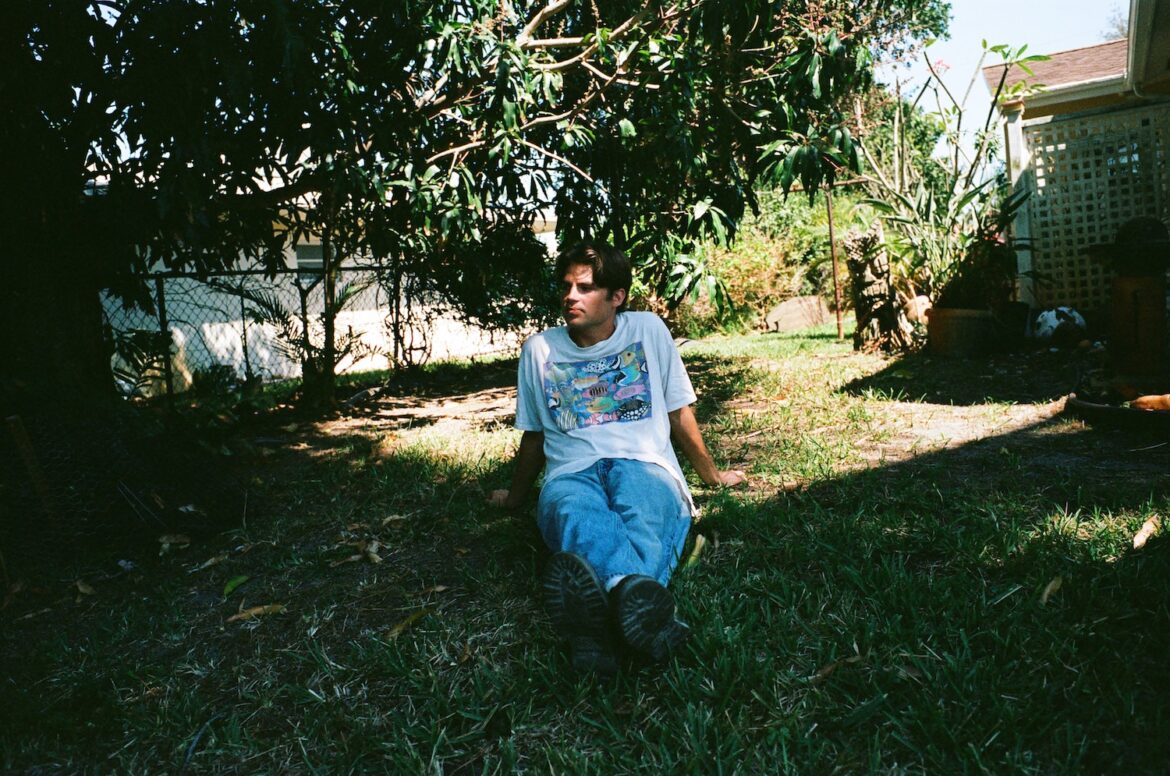
 © courtesy of the artist
© courtesy of the artist